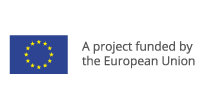Emerging Arab Common Market for electricity
![]()
Energy ministers of 14 Arab countries announced an ambitious energy project to establish an Arab Common Market for electricity. On April 6th, during the12th session of the Arab Ministerial Council for Electricity, held at the Arab League headquarters in Cairo, ministers signed a memorandum of understanding. ”This confirms their political commitment to an integrated electricity supply system for the power grids of the Arab countries,” said the Assistant Secretary General and Chairman of the Economic Affairs Sector at the Arab League, Kamal Hassan Ali. Hundreds of billions of dollars’ worth of investment opportunities are emerging, both in solar power production and the wider electricity supply chain.
Climate change, ongoing low oil prices and current demographic trends are increasingly motivating the region to invest in a more secure and diversified energy portfolio. With an estimated population of 692 million by 2050, the region will require a substantial increase in generating capacity to meet future energy demands. As explained in the recent report “MENA Power 2017”, power generation capacity in Middle East and North Africa (MENA) countries will have to rise by almost 150GW to reach 440GW by 2020, an increase of just over 50% on the current available capacity of 290GW.
The region is placing greater emphasis on renewable energy. To feed the rapidly rising demand for energy, APICORP Energy Research estimates that a total of $302 billion of investments will be needed over the next 5 year period (2017 – 2021). Solar power is the first source of renewables for the region, as the world’s deserts receive enough energy in 6 hours to meet the globe’s annual energy needs. Just in the six countries of the Gulf Cooperation Council (GCC), power construction contractor awards increased 14% to $25.5 billion in 2017 over 2016. The highest increase was in Saudi Arabia, which saw a 50% increase to $12.35 billion in contractor awards versus 2016. The UAE recently announced a nationwide power strategy which aims to have 50 percent clean energy by 2050. Solar power features heavily in its plans and is expected to account for 25 percent of the generation mix once a $13.7 billion (5GW) solar park is fully commissioned in 2030.



